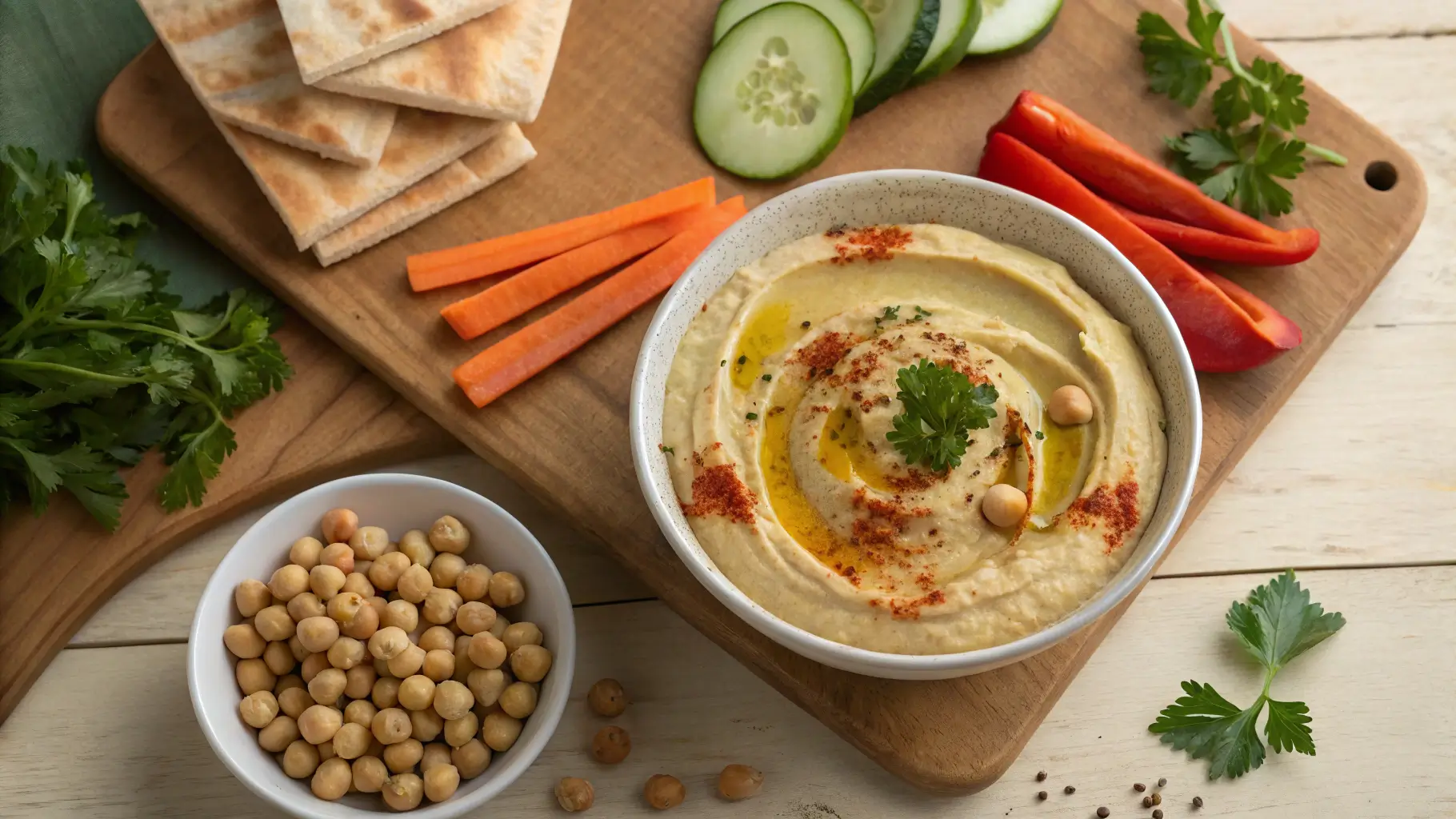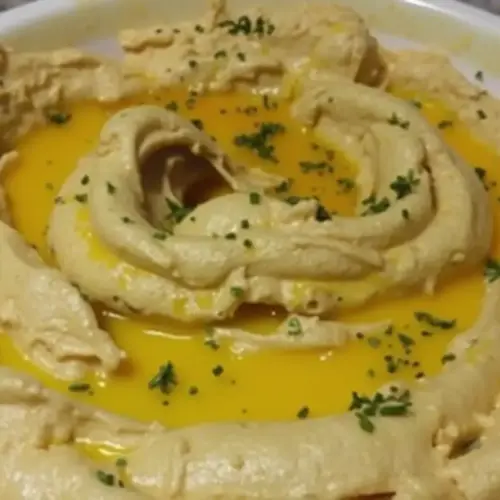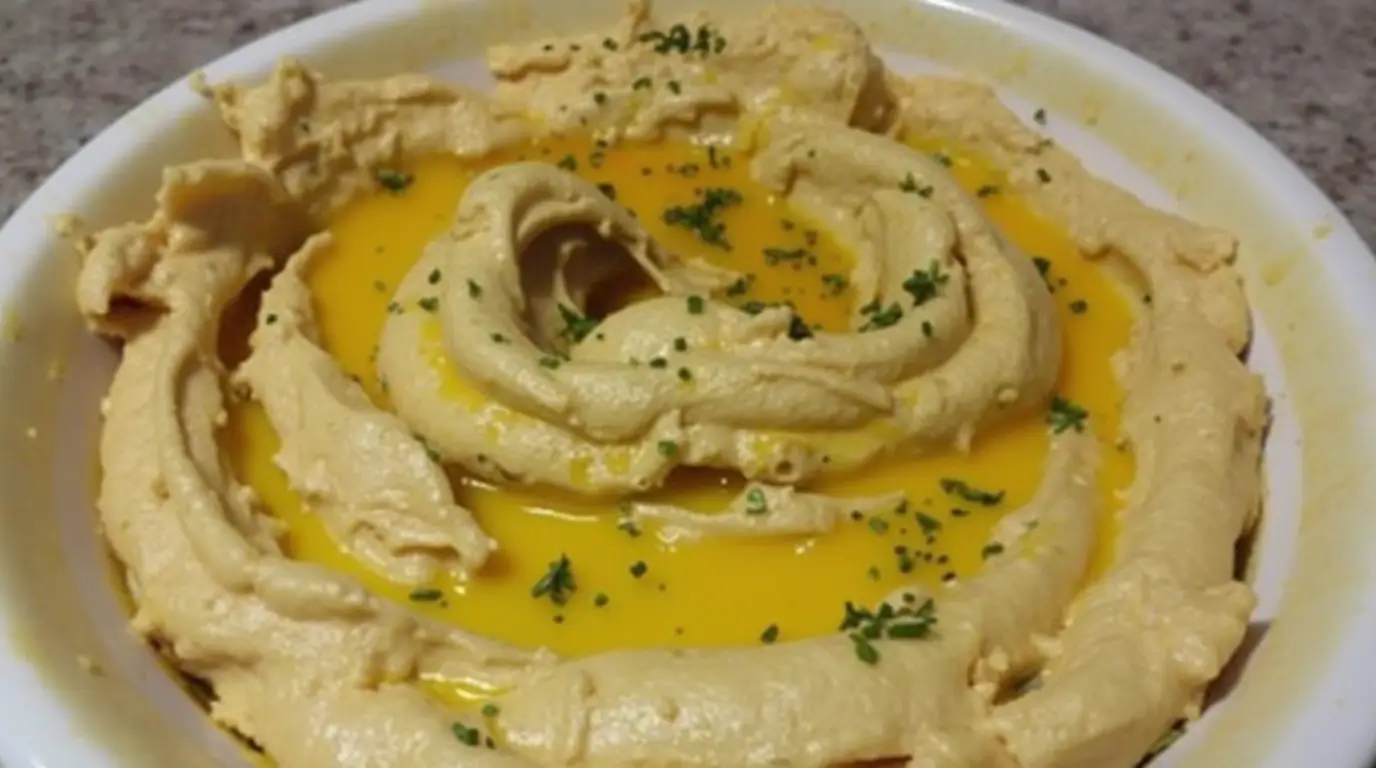Few foods are as universally beloved as hummus. the classic dip that’s basically a pantry staple in my house! I remember the first time I tried making it from scratch. Let’s just say my food processor sounded like it was about to launch into space, and the final result? Grainy, bland, and nothing like the creamy, dreamy hummus I craved. But don’t worry, I’ve cracked the code! This isn’t just a recipe; it’s a journey to hummus perfection, complete with tips, tricks, and even a little troubleshooting to save you from my past hummus-making disasters. Trust me, once you master this, you’ll never buy store-bought again. This recipe is a total game-changer, transforming humble ingredients into a vibrant, flavorful dip that’s perfect for snacks, parties, or even a quick lunch. So, ditch the store-bought stuff and let’s get started!
What’s more, hummus has stood the test of time. This beloved Middle Eastern dip has remained relevant through centuries, evolving in different ways while staying true to its roots. The best part? It’s so easy to make at home, and the result is always fresher and more flavorful than store-bought versions.
And speaking of pantry staples, have you tried making your own? It’s another kitchen essential that’s surprisingly easy to whip up!
The Secret to Silky Smooth Hummus
This isn’t just about throwing ingredients into a blender! We’re diving deep into techniques that guarantee the creamiest, dreamiest hummus you’ve ever tasted. I’ll share my secret weapon for achieving that restaurant-quality texture (hint: it involves patience and a little extra effort). This section is all about the ‘how’ – from soaking chickpeas for the right amount of time to peeling them (yes, peeling!), you’ll learn the steps that make all the difference. We will also talk about the importance of the right kind of tahini, and ways you can substitute it, if required.
This section alone will transform your hummus game. Think of it as a mini culinary class, designed to elevate your skills and leave everyone wondering, ‘How did you make this?!’
Flavor Boosters: Beyond the Basics
Ready to take your hummus to the next level? This section is all about experimentation and customization. We’ll explore a range of flavor enhancers, from roasted garlic and smoky paprika to sun-dried tomatoes and fresh herbs. I’ll show you how to balance flavors, avoid common pitfalls, and create unique hummus variations that will impress your friends and family.
Looking for more ways to jazz up your snacks? Explore my guide to preparing [easy and delicious potato skins](https://quickflavors.com/easy-and-delicious-potato-skins/) for another crowd-pleasing appetizer.

Hummus Troubleshooting: Avoiding the Pitfalls
Let’s be real, things don’t always go as planned in the kitchen. This section is your safety net, addressing common hummus-making problems and providing practical solutions. Grainy texture? Too bland? Too thick? We’ll tackle it all! I’ll share my troubleshooting tips to help you salvage any hummus mishap and ensure a perfect outcome every time. Think of this as your Hummus First Aid Kit – a resource you can turn to whenever you need a little extra guidance. This section is all about empowering you to conquer any hummus-related challenge and build your confidence in the kitchen.

Hummus
Ingredients
- 1 can 15 oz chickpeas drained and rinsed
- ¼ cup fresh lemon juice about 1 lemon
- ¼ cup tahini
- 1 small garlic clove minced
- 2 tablespoons extra virgin olive oil plus more for garnish
- ½ teaspoon ground cumin
- Salt to taste
- 2–3 tablespoons water as needed for consistency
- Paprika or sumac for garnish (optional)
- Chopped fresh parsley for garnish (optional)
Instructions
- In a food processor, combine tahini and lemon juice. Process for about 1 minute until the mixture is creamy and whipped.
- Add minced garlic, olive oil, cumin, and a pinch of salt. Process again to combine.
- Add the chickpeas and process while slowly adding 2–3 tablespoons of water to achieve a smooth, creamy consistency. Scrape down the sides as needed.
- Taste and adjust seasoning, adding more salt or lemon juice if desired.
- Transfer to a bowl, drizzle with extra olive oil, and sprinkle with paprika or sumac. Garnish with fresh parsley.
- Serve with pita bread, vegetables, or as a spread. Enjoy!
Notes
If you prefer a stronger garlic flavor, use one extra clove.
Store in an airtight container in the refrigerator for up to 5 days.
FAQ: Everything You Need to Know About Hummus
Is hummus good for weight loss?
Yes! Hummus is high in fiber and protein, which can help keep you feeling full longer and prevent overeating. Additionally, the healthy fats in hummus promote satiety, making it a great snack choice for those looking to manage their weight. Just be mindful of portion sizes, as hummus is calorie-dense.
How long does homemade hummus last?
Freshly made hummus typically lasts about 4-5 days in the refrigerator when stored in an airtight container. If you plan to store it for a longer period, freezing hummus is an option (more on that below).
Can I freeze hummus?
Absolutely! Hummus freezes well, though its texture may change slightly after thawing. Store it in an airtight container, leaving some room for expansion, and it will last up to 3 months in the freezer. When you’re ready to eat it, let it thaw in the refrigerator overnight and give it a good stir before serving.
What are the best ways to enjoy hummus?
Hummus can be enjoyed in countless ways. Some of the most popular methods include:
As a dip for fresh veggies (like carrots, cucumber, and bell peppers)
Served with pita bread or pita chips
Spread on sandwiches or wraps
Swirled into grain bowls, salads, or roasted vegetables
Used as a topping for grilled meats or fish
Is hummus safe for people with food allergies?
Hummus is naturally gluten-free and dairy-free, but it does contain sesame (in the form of tahini) and garlic, which are common allergens. If you or someone you’re serving has a sesame or garlic allergy, make sure to either substitute those ingredients or avoid hummus altogether.
Final Thoughts
So there you have it! Your guide to creating the perfect, classic hummus. Remember those tips and tricks – soaking those chickpeas makes all the difference, and don’t be afraid to experiment with flavors. Cooking should be fun, so embrace the process and don’t stress if things aren’t perfect the first time.
Hummus is not just a dip; it’s a blank canvas for your culinary creativity. Whether you’re serving it with pita bread, veggies, or using it as a spread for sandwiches, the possibilities are endless. Now, go forth and conquer the world of hummus! And if you try this recipe, be sure to let me know in the comments below. I’d love to hear about your hummus creations and any flavor combinations you’ve discovered. Happy dipping!



